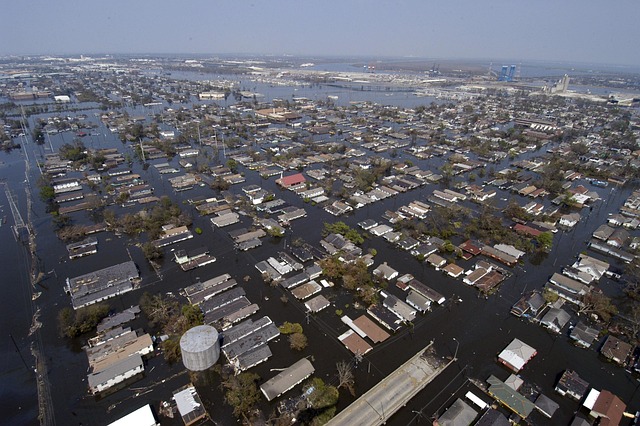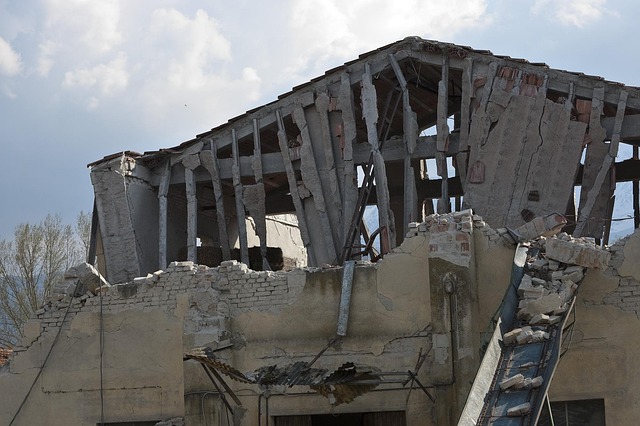Denver's diverse business landscape and exposure to natural hazards and cyber threats require tailored disaster recovery strategies. A comprehensive DRP should include flood/landslide mitigation, robust security protocols, regular software updates, employee data protection training, and offsite data backup. Regular workshops, integrated data recovery, effective communication channels, cybersecurity training, and simulated drills are essential for quick restoration, preventing business interruptions, and aligning with best practices. Staying current with technology and industry trends bolsters defenses against evolving threats like cyberattacks and natural disasters in Denver.
In the heart of Colorado, Denver’s dynamic business landscape faces unique challenges that demand robust continuity planning. This article explores best practices tailored to Denver’s context, focusing on disaster recovery strategies for cities’ specific risks. From assessing local hazards to implementing secure data backup plans and establishing crystal-clear communication channels, we guide businesses through essential steps. Regular testing and updates ensure your resilience against unforeseen crises. Discover how these measures can safeguard your operations and sustain Denver’s thriving economy in the face of adversity, emphasizing effective disaster recovery as a cornerstone for business success in the Mile High City.
- Assessing Denver's Unique Business Risks
- Developing a Comprehensive Disaster Recovery Plan
- Implementing Key Strategies for Data Backup and Security
- Ensuring Effective Communication During Crises
- Regularly Testing and Updating Your Continuity Plan
Assessing Denver's Unique Business Risks

Denver, with its vibrant economy and diverse business landscape, presents unique challenges when it comes to disaster recovery and business continuity planning. Assessing these risks is a critical step in preparing for potential disruptions. The city’s exposure to natural hazards such as earthquakes, wildfires, and severe weather events requires tailored strategies. For instance, businesses located in areas prone to flooding or land slides need specific measures to safeguard their operations and data center recovery after disaster.
Moreover, Denver’s status as a major transportation hub and its dense population make it vulnerable to cyber threats. The city has a growing number of cybersecurity experts who can offer valuable insights into the latest trends and best practices for protecting sensitive information. Implementing robust security protocols, regularly updating software, and conducting employee training on data protection are essential components in any Denver-based disaster recovery best practices guide. These proactive steps will ensure business resilience in an increasingly complex digital environment.
Developing a Comprehensive Disaster Recovery Plan

In the dynamic landscape of business operations in Denver, preparing for unforeseen disruptions is paramount. Developing a Comprehensive Disaster Recovery Plan (DRP) serves as a robust shield against potential crises, enabling businesses to swiftly bounce back and maintain continuity. This strategic plan involves meticulous steps such as identifying risks specific to Denver’s environment, including natural disasters like floods and wildfires, as well as technological failures. By outlining critical operations, resources, and dependencies, companies can ensure swift restoration.
Engaging in regular disaster recovery planning workshops denver facilitates a collaborative approach. These sessions involve stakeholders from diverse departments to share expertise and identify vulnerabilities. Additionally, implementing robust offsite data backup denver mechanisms ensures that invaluable business information remains secure and readily accessible during disruptions. Integrating data recovery denver strategies into the DRP further fortifies defenses against data loss, guaranteeing business resilience in an ever-changing and unpredictable world.
Implementing Key Strategies for Data Backup and Security

In the face of growing cyber threats and natural disasters, implementing robust data backup and security strategies is paramount for any Denver business aiming for long-term continuity. A comprehensive disaster recovery plan in Denver should include regular, off-site backups of critical data, ensuring redundancy and quick restoration capabilities in case of loss or corruption. This includes encrypting sensitive information both at rest and in transit to prevent unauthorized access.
Moreover, businesses should explore solutions like cloud-based storage and hybrid backup methods for enhanced flexibility and security. With Denver’s diverse disaster scenarios, including fire damage (requiring expert Fire Damage Restoration Denver services), having a robust data recovery strategy is not just an option but a necessity. For startups particularly, integrating these best practices from the outset can prevent disruptive business interruptions and ensure resilience against potential disasters, aligning with the broader goals of denver disaster recovery. Business interruption insurance also plays a critical role in mitigating financial losses during recovery periods, complementing robust data backup and security measures.
Ensuring Effective Communication During Crises

In any crisis situation, effective communication is paramount for a successful Denver business continuity plan. Businesses should establish multiple channels to ensure information flows smoothly and consistently to all stakeholders, including employees, customers, and partners. This involves setting up dedicated communication protocols, such as emergency alert systems, regular update meetings, and clear escalation procedures. By doing so, organizations can minimize confusion, enhance coordination, and facilitate quicker decision-making during disasters like a Flooded Basement Denver or Water Damage Restoration Denver.
Moreover, integrating cybersecurity and disaster preparedness training Denver into the communication strategy is vital. Regular training sessions should be conducted to educate employees on handling potential cyber threats and responding effectively to unexpected events. This knowledge empowers them to recognize and mitigate risks, ensuring that even in the face of challenges like a flooded basement or water damage restoration Denver, business operations can continue with minimal disruption. Effective communication thus becomes a robust tool for fostering resilience and maintaining continuity.
Regularly Testing and Updating Your Continuity Plan

In the dynamic landscape of business operations in Denver, a robust continuity plan is not a set-and-forget document. It’s akin to a living organism that needs regular feeds and checks to ensure it remains effective against evolving threats, from cyberattacks to natural disasters. Regularly testing and updating your continuity plan is a crucial aspect of disaster recovery in Denver, ensuring your business can weather any storm. Conducting simulated drills, both large-scale and scenario-based, allows you to assess response times, identify bottlenecks, and reinforce critical procedures.
Moreover, staying abreast of technological advancements and industry trends is vital. With the ever-changing digital environment, new risks emerge, necessitating updates to your disaster recovery Denver strategies. For instance, integrating cloud-based solutions or enhancing cybersecurity measures can fortify your defenses against emerging threats. Regular reviews also allow for the inclusion of recent events, such as unexpected closures (like sewage cleanup Denver incidents) or data center failures, reflecting real-world scenarios into your plans. This proactive approach ensures that when an emergency strikes, whether a natural disaster or a cyberincident, your business is ready to respond swiftly and effectively, minimising downtime and maximising recovery potential with the aid of denver co emergency response services.
Denver’s business continuity planning requires a holistic approach, addressing unique risks and implementing robust strategies for data security and crisis communication. By regularly testing and updating disaster recovery plans, businesses can ensure they are prepared for any unforeseen event. Embracing best practices, such as comprehensive risk assessment and effective backup protocols, is vital for the resilience of Denver’s corporate landscape, ultimately fostering a more adaptable and secure business environment. This includes prioritizing Disaster Recovery Denver to mitigate potential disruptions and safeguard operations.
